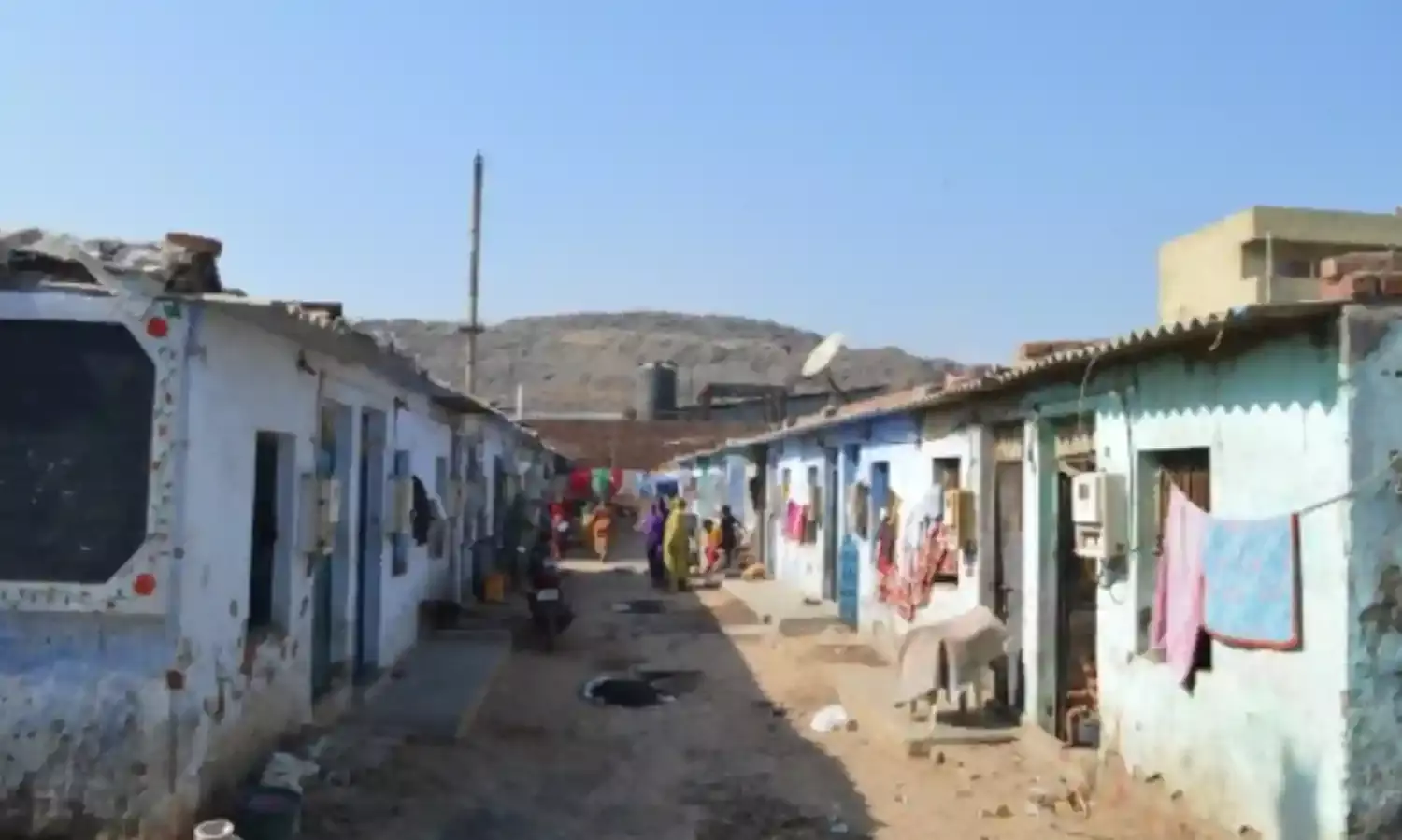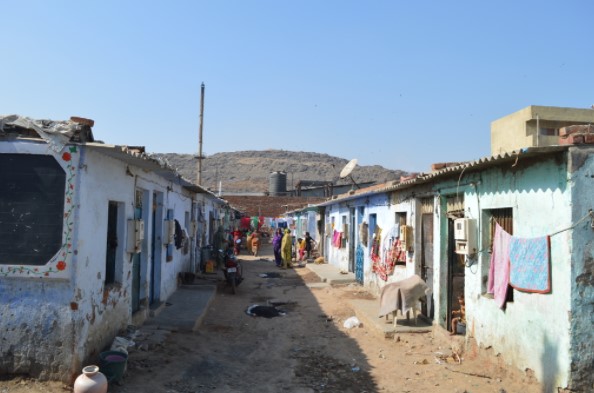Sazaa
Their punishment is not what the court pronounces. It is what their families face.

“The chacha you visited on your last trip is dead,” an acquaintance told me. I just shrugged my shoulders. What else does one expect to happen to an old man suffering from throat cancer – a man who is physically weak, has nothing much to eat, depends on the earnings of the women in the home, and is psychologically finished?
The person in question was an old Muslim man, father of three persons accused in a case pertaining to the burning of 59 Hindu rail passengers in Godhra in 2002. What followed the incident is known to everyone. For media persons Godhra had become an important destination, and I too had made several trips to the place.
It was in February 2006 that I first visited his home in a slum. I was to interview some of the families of the more than one hundred accused in the case. As soon as I entered his house along with another journalist friend, I saw him lying on a cot, a frail figure dressed in white kurta pyjama along with the traditional crocheted skullcap. Our eyes just met for a second, and his conveyed in no uncertain terms that he had lost – he was a loser from all the sides.
I sat on an empty corner of his cot while my friend occupied the only broken chair. I tried making small talk with him but soon realized that he was in no position to speak and was terribly sick. His convulsions, accompanied by drops of tears, seemed to convey both his physical agony and his helplessness. One of the boys from the neighbouring hutment had gone to call his wife. We sat there waiting.
The silence of the room which bore the quiet cries of agony was broken by the sudden entry of an old woman, a woman rustic in behaviour and appeal. But her first broken sentence was enough to convey the economic condition of the family. “Muaf karna beta, aane mein der ho gayi, kyunki akeli jodi chappal ka strap toot gaya tha…” – Sorry son, I got late as a strap broke on the only pair of slippers I have, she said, wiping her brow.
By then I could gather that my journalist friend was getting uncomfortable, as this was the first such story he was working on along with me and it was also his first visit to Godhra. So I decided to treat the subject as a mere subject and be done with the assignment.
I asked the woman where the rest of the men of the family were. She replied that her three bread-earning sons were all in jail as accused for the Godhra fire. She said all three were innocent, and had been at home at the time of the incident, only to be picked up by the police in the middle of the night for mere questioning, never to return. Their guilt or innocence was for the courts to decide – the trial was yet to start though it was August 2006 – and I left them at that.
“It is four years and there is no sign of their being either sentenced or acquitted. In these four years we have been reduced to living a life worse than that of animals,” she said.
The woman went on to relate, “This old man has taken to the cot. He cannot eat, let alone earning a couple of rupees a day. Both of us know that it is unlikely that he will see his sons again.”
The old man convulsed and wept but there was no sound coming from his throat. Only his eyes seemed to scream.
By that time three poorly dressed young girls with some children in rags had entered the room. “These are my daughters in law, cursed to live this life with us,” the woman said as she burst out crying. She went on to tell me that all the women here were working in rich Muslim households as domestic help.
Domestic help would be too decent a term for them, as all they were doing was cleaning dirt and utensils only to be paid a pittance in return. The logistics were simple: Hindus would not employ them and even otherwise, they carried the stigma of belonging to the family of those accused of the Godhra train burning, a family that was repeatedly visited by the police.
Hence, a few rich Muslim families employed (!) them and justified their payment of pittance as charity to those carrying the stigma.
I asked the youngest girl. How were they being treated in society?
“Everyone makes lewd remarks, ogles at my youth, and makes fun of my penury with suggestive comments. Do I cease to be a respectable human being…?” she could not complete the sentence. I knew it would be futile to ask the tens of other questions in my mind as all the girls had started crying by then.
Were their husbands actually involved in the crime? Did they plan to educate their children? Did their children ask about their fathers, and what reply did the mothers give? Did the family celebrate Eid? Did they see a chance of their husbands being acquitted? It all remains unanswered to date.
We stood up quietly and decided to get out. I nodded to the old man. The nod simply conveyed that I understood that time was short for him while the agony for his family was immense. His eyes seemed to agree.
Almost three decades ago, maybe it was in 1992, that I had read a story in my Hindi textbook. It was called Sazaa, or Punishment, and it was written by Mannu Bhandari. It is about the plight of the family of an undertrial while he faces the case in court. By the time he is acquitted, his family has already undergone a punishment in society, being met with all sorts of hardship on both the economic and personal fronts.
I never imagined I would be a witness to several such stories in my real life. For decades, the families of undertrials continue to undergo ‘Sazaa’ as described by Mannu Bhandari. Their punishment is not what the court pronounces. It is what their families face on the social, psychological and economic fronts, bearing the stigma.
News of Mannu Bhandari’s death last year brought back to mind the story in all its different connotations that I understand. This is the power of the written word, and why writers like Mannu Bhandari will always remain.




